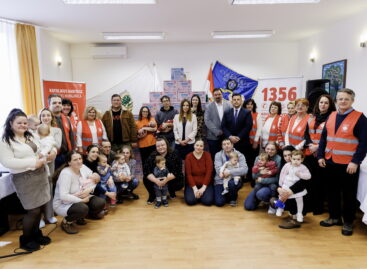Green Brands brand marketing
Independent international brand marketing organisation Green Brands started its Hungarian training programme with two ‘Academies’ in April and May.
Ákos Kozák, the first speaker at the April event made an attempt at defining who can be considered ‘green’? His presentation came to the conclusion that Hungarian consumers are somewhat interested in the topics of environmental pollution and climate change, but they don’t care about them very much.
Emese Gulyás, co-founder of the Conscious Shoppers Association spoke about the market opportunity conscious shoppers represent for product manufacturers and service providers. She opines that the right consumer attitude in itself isn’t enough, for instance 46-65 percent of shoppers like organic products, but only 4-10 percent actually buy them. It isn’t always the price that makes shoppers buy ordinary products instead of organic ones; sometimes consumers just don’t know which product suits their needs the best.
Dr Krisztina Zita Dörnyei, managing director of Idearium Consulting talked about the importance of calling shoppers’ attention to what is new or good about a product; shoppers want convenience and experiences to be satisfied. She revealed that on average shoppers decide which product to put in their basket in 7 seconds – this is the time period during which they must be convinced that the given product is green. This is basically impossible without well-known trademarks.
In May the Academy’s topic was: ‘Is sustainability good business?’ The first speaker was Károly Kovács, president of the Hungarian Water and Wastewater Technology Association. He talked about the life cycles of investments in this field. Gábor Pozsonyi, a member of Magnet Bank’s board of directors gave participants an insight into value-based banking. Gábor Sorger, managing director of Goodwill Consulting Kft. gave a presentation about grant programmes with a sustainability element. //
Related news
dm welcomes customers with stable prices and a superb price-value ratio
🎧 Hallgasd a cikket: Lejátszás Szünet Folytatás Leállítás Nyelv: Auto…
Read more >Related news
dm’s Together for Babies program continues this year
🎧 Hallgasd a cikket: Lejátszás Szünet Folytatás Leállítás Nyelv: Auto…
Read more >Storck Hungária: new sales manager has arrived
🎧 Hallgasd a cikket: Lejátszás Szünet Folytatás Leállítás Nyelv: Auto…
Read more >








